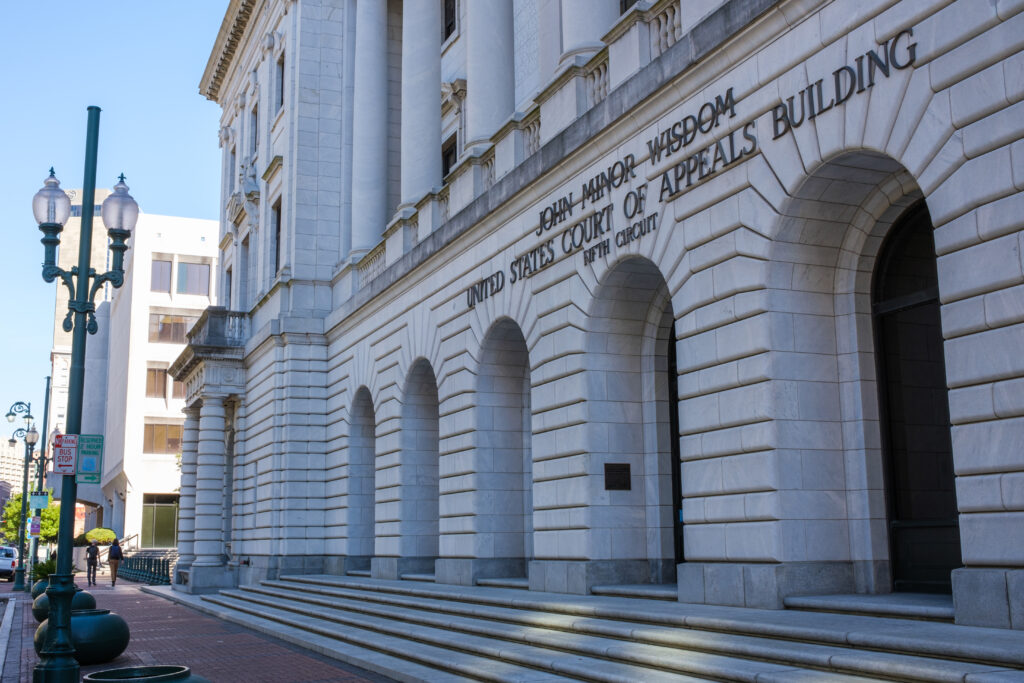5th Circuit Upholds Consent Decree for Louisiana Supreme Court Justice Elections
WASHINGTON, D.C. — On Wednesday, Oct. 25, the 5th U.S. Circuit Court of Appeals affirmed a decision that maintains a 1992 consent decree requiring Louisiana to have a majority-Black district in Orleans Parish for state Supreme Court elections.
This victory stems from a lawsuit filed in 1986 by Black voters in Louisiana against the Louisiana governor, secretary of state and commissioner of elections alleging that the state’s method used to elect the seven justices of the Louisiana Supreme Court violated Section 2 of the Voting Rights Act (VRA). Before this lawsuit was filed, Louisiana had never elected a Black state Supreme Court justice.

This case has a long and winding history through the federal court system. At the time it was filed in the 80s, two justices were elected from one multi-member district in New Orleans and the remaining five justices were elected from single-member districts. The plaintiffs alleged that this method violated the VRA because it diluted the voting strength of Black voters.
Initially, the district court sided with the state and ruled that the election system did not violate the VRA. On appeal, the 5th U.S. Circuit Court of Appeals held that Section 2 of the VRA did not apply to judicial elections. Eventually, the case made its way to the U.S. Supreme Court, which ruled in 1991 that state judicial elections are protected under Section 2. The Court sent the case back down to the 5th Circuit.
In 1992, the parties entered into a consent decree (an agreement) to ensure that Louisiana’s state Supreme Court elections did not violate Section 2. Specifically, the 1992 consent decree required the state to:
- Create a temporary eighth seat (called the Chisom seat) on the Louisiana Supreme Court;
- Require the Louisiana Legislature to dissolve the controversial multi-member district and
- Ensure that the justice occupying the Chisom seat was an equal member of the Louisiana Supreme Court.
The Chisom seat was a remedy that allowed the justices who were elected from the now-defunct multi-member district to complete their terms while also ensuring Louisiana’s Supreme Court districts complied with the VRA. The consent decree allowed Orleans Parish, a majority-Black area, to add an additional seat to its appellate court; the person who was elected to this seat was also “assigned” to serve on the Louisiana Supreme Court as a “temporary” eighth justice. Importantly, this consent decree led to Louisiana electing its first Black Supreme Court justice, Revius Ortique Jr., in 1992.
In 1997, the Chisom seat was dissolved after legislation created a majority-minority Supreme Court district in Orleans Parish, but the consent decree still remained in effect.
In 2012, Justice Bernette Johnson asked the federal district court to reopen the case when her colleagues on the Louisiana Supreme Court would not count her time in the Chisom seat toward her tenure in order for her to become chief justice. The district court granted her request to enforce the consent decree and Johnson served as chief justice until she retired in 2020.
In 2021, the state moved to dissolve the consent decree. In May 2022, the district court declined to grant this request after finding that the consent decree was still necessary “to ensure compliance with Section 2 of the Voting Rights Act.” The state appealed this decision to the 5th Circuit, which held oral argument on March 6, 2023. Today, the 5th Circuit affirmed the district court’s decision.
In a 2-1 decision authored by two judges appointed Presidents George H.W. Bush and Bill Clinton, the 5th Circuit held that the consent decree will remain in place as the lower court found that “the State had not shown that it was well-positioned to ensure future compliance with the Section 2 of the VRA and thus denied its motion to dissolve.”
The decision highlights that the consent decree is still very much necessary for VRA compliance as “the State provided no evidence, plans, or assurances of compliance with Section 2 of the VRA in the event that the Consent Judgment is terminated.”
In a comment to Democracy Docket in April, Leah Aden, Senior Counsel for the NAACP Legal Defense Fund explained: “The fact that [the state] was recalcitrant in recognizing Justice Johnson’s seniority back in 2012, the fact that they came into court with what we have described as pretextual reasons in this case for why they need to close the consent decree.” She emphasized that the consent decree has been working and without it “we will return to the landscape that we had in the late 1980s and 1990s where it was an all white judiciary and that’s unacceptable.”
Today’s opinion dispelled the state’s argument that electing three Black justices to the state Supreme Court meant that the consent decree is no longer needed as “the election of a member of the minority group is one factor to consider,” but “this alone does not demonstrate that the vestiges of past discrimination have been eliminated to the extent practicable.”
The 5th Circuit’s 2-1 decision is a victory for Black voters in Louisiana who will retain the opportunity to elect a candidate of their choice to the state’s highest court.
Learn more about the case here.